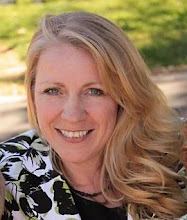 While working in the yard one day, my mom turned at just the wrong moment and got poked in the eye with a peach branch. It took a doctor over an hour to remove all the debris, and she had to wear an eye patch for several days. Even after the patch was removed, the eye was bruised and sensitive for a long time and she had to take care not to get other irritants in it. In a very real sense, she learned what most of us will never know first hand about having a "log" in our eye.
While working in the yard one day, my mom turned at just the wrong moment and got poked in the eye with a peach branch. It took a doctor over an hour to remove all the debris, and she had to wear an eye patch for several days. Even after the patch was removed, the eye was bruised and sensitive for a long time and she had to take care not to get other irritants in it. In a very real sense, she learned what most of us will never know first hand about having a "log" in our eye.Try this--get a needle and thread, close one eye and try to thread the needle while holding it at least a foot from your eye. How long does it take you? Do you find yourself moving it closer to your open eye?
The problem is, when you have only one good eye, depth perception is lost, so you can't see very far or very accurately. Imagine trying to detect something small in another person's eye when you only have one eye to use. To make it more challenging there is a large object protruding out of your eye that makes it impossible to get close enough to really see what you are doing.
"Why do you look at the speck of sawdust in your brother's eye and pay no attention to the plank in your own eye? How can you say to your brother, 'Let me take the speck out of your eye,' when all the time there is a plank in your own eye? You hypocrite, first take the plank out of your own eye, and then you will see clearly to remove the speck from your brother's eye.
I think judging usually starts with looking to see where we stand in relation to other people. If we think we are ahead of the game, at least in our own estimation, we can justify backing off working on the areas where we fall short.
Oswald Chambers said, "Which of us would dare stand before God and say, "My God, judge me as I have judged my fellow men'?..The measure you mete out is measured to you again...If you have been shrewd in finding out the defects of others, that will be exactly the measure meted out to you; people will judge you in the same way."
It seems like the most often quoted passage of scripture these days is “Do not judge...” Of course, in the context it gets used, it usually means that someone is judging someone else for judging! I also know that sometimes “not judging” is kind of easier said than done.
Two things have helped me begin to overcome the critical spirit that seems to be part of my DNA. The first is realizing that when I look at the example I have in Christ and am working on the things I need to work on, I don't have time to worry about others' shortcomings. When I’m busy doing what God has given me to do, I’m not even aware of what someone else is or isn’t doing. Several times in the year+ since we moved here, God has very plainly showed me that my primary occupation for the moment is to help our family settle in and to create a supportive atmosphere for Hubs work. Sometimes I think I need to be more involved in the classroom or maybe leading something at church. But I’m only responsible for doing what God puts on my plate and for this season, with two pre-school aged kids, that keeps me pretty close to home. The day will come when they’ve got friends and activities of their own and I’ll branch into other things as well. I hope that I’ll remember this season in my life and be gracious with others who might not be in a position to take on what I think they should.
I’ve also learned that I don’t know what God is doing in someone else’s life; the things I think I see may not be the things he’s working on yet—and it’s none of my business! Years ago I saw the harm done when someone felt God had revealed some new truths in their life. That in itself is a great thing, but the spirit they demonstrated while expecting everyone else to get on board with them was anything but great. I remembered thinking how ironic it was that it took God 20+ years to bring these revelations to light in this person’s life, but they had no patience for anyone who wasn’t instantly on the same wavelength.
God works in each of us at his own pace to His glory. I think the best we can do if we see something that may seem to be a blindspot for someone is to pray first that we aren’t blind in that area. If there is anything to be done at that point it’s more likely to be to come alongside them and see how we can help rather than being critical and especially taking our “concerns” to anyone other than God. I have a feeling he doesn't need our help "fixing" people as often as we think he does!
 These rich log cookies can be a reminder that it is more important for us to deal with our own flaws and shortcomings before we worry about those we think we see in others.
These rich log cookies can be a reminder that it is more important for us to deal with our own flaws and shortcomings before we worry about those we think we see in others.Date Planks
1 ½ cups flour
1 teasp. baking powder
1 teasp. salt
3 eggs
1 ½ cups lt brown sugar (packed)
1 ½ cups (8 oz.) pitted, chopped dates
¾ cup chopped walnuts or pecans
Preheat oven to 350 degrees.
In a medium bowl, mix together flour, baking powder and salt. Add dates and toss gently to coat with flour mixture. Set aside.
In a large bowl, beat eggs until light and frothy. Beat in the brown sugar. Gradually mix in flour and dates. Fold in nuts.
Spread mixture into a greased 9x13-inch baking pan. Bake for 30 minutes or until top is light brown and toothpick inserted into center comes out clean.
Cool in pan for about 15 minutes, then cut into ½-inch by 3-inch “planks.” Cool on wire rack and store in airtight container.
Adapted from material previously published in A Tea for All Seasons, Mary Pielenz Hampton, 1997. All rights reserved.















1 comment:
This is a great topic. Isn't it so easy to judge other people? Focusing on our own shortcomings and working to improve is a perfect way not to worry about the shortcomings of others!
Thanks for visiting my blog!
Post a Comment